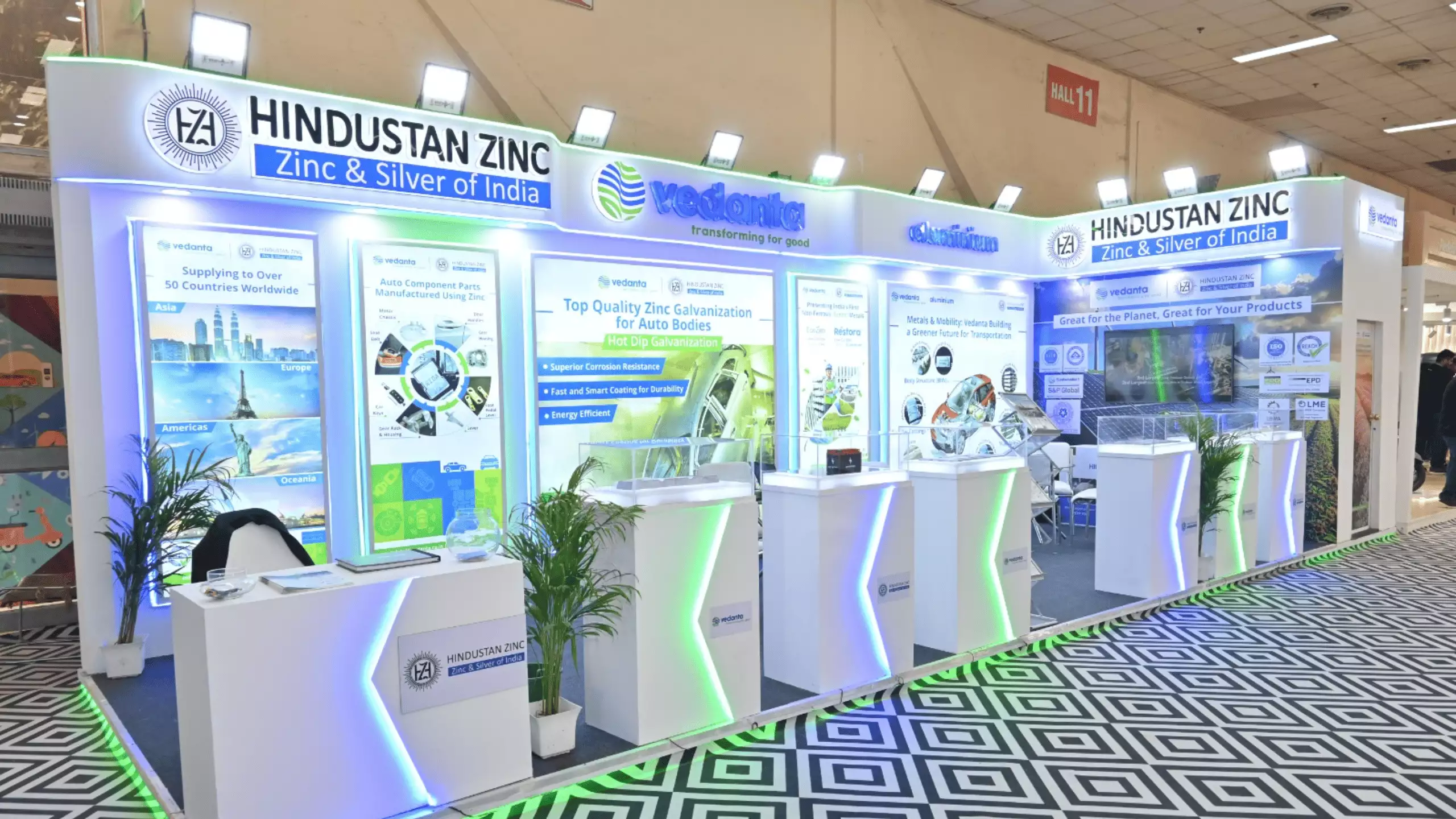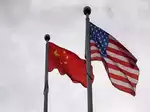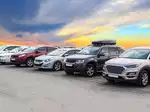Hindustan Zinc unveils innovative zinc products at Bharat Mobility Expo 2025

Hindustan Zinc aims to support the automotive industry's shift towards sustainability and localization by offering domestically produced, high-quality zinc, lead, and silver. The company emphasizes the increasing consumer demand for corrosion-resistant vehicles and the role of galvanized steel in meeting this need.
Zinc die-casting alloys
Hindustan Zinc presented its new die-casting alloys, HZDA 3 and HZDA 5, designed for the automotive industry's hot chamber die-casting process. These alloys, commonly known as ZAMAK, offer superior castability, dimensional stability, and finishing properties. Hindustan Zinc is the primary producer of these alloys in India, which were previously primarily imported.
The company’s die-casting alloys are engineered to provide higher strength, electrical conductivity, corrosion resistance, and dimensional tolerance to automobiles. By offering these alloys domestically, Hindustan Zinc aims to support automakers and component manufacturers in reducing reliance on imports and building a robust domestic supply chain.
The company also showcased EcoZen, its low-carbon "green" zinc. EcoZen has a 75% lower carbon footprint than conventionally produced zinc. Using EcoZen can reduce carbon emissions by approximately 400 kg per tonne of galvanized steel.
The product range also includes lead and silver. Lead is essential for automotive batteries, components, and radiation shielding. Silver enhances conductivity and efficiency in automotive electronics.
Arun Misra, CEO and Whole-time Director, Hindustan Zinc Limited, said, “The automotive industry is at the forefront of shaping a sustainable future, and Hindustan Zinc is proud to be a partner in this journey. We are committed to delivering innovative, high-quality solutions that not only meet but exceed the industry’s expectations. Our vast product portfolio will play a pivotal role in driving efficiency, sustainability, and design excellence in automotive manufacturing. We are excited to showcase our diverse metals at Bharat Mobility Global Expo 2025, a platform that mirrors our vision of co-creating a future beyond boundaries.”
Growing demand for corrosion protection in Indian cars
Indian car buyers are increasingly prioritising corrosion protection, seeking "corrosion-free" or anti-perforation warranties. These warranties cover rust protection in addition to paint fading and peeling. Global cosmetic warranties typically last five years, while anti-perforation warranties extend up to ten years.
This increased demand for rust protection is driven by the prevalence of rust issues in vehicles, often appearing within the first few years, particularly due to India's harsh weather conditions.
Galvanized steel, coated with zinc, is the most effective solution for preventing corrosion. Hindustan Zinc's Special High-Grade Zinc (SHG) is a leading product for this application. Post-purchase anti-rust treatments are considered less effective for long-term protection, the company said.
The use of galvanised steel in car bodies (Body-In-White or BIW) represents a small fraction of the vehicle's selling price (less than 0.1%). This cost is offset by optimized manufacturing processes, reduced customer maintenance expenses, and enhanced brand reputation due to improved vehicle safety and performance.
While nearly 70% of Indian cars manufactured for export utilise galvanized or galvannealed steel due to international standards, only about 25% of cars for the domestic market incorporate zinc-coated steel. Furthermore, the percentage of zinc-coated steel used in domestic models can vary significantly, from 3% to 50%, compared to 70-80% in export models. This discrepancy highlights the growing need for improved rust protection in cars sold within India.
Long-standing relationship with the automotive industry
Hindustan Zinc has a long-standing relationship with the auto industry, supplying a wide range of metals for diverse applications. These applications include car bodies, batteries, electronic chips, accessories, and other corrosion-resistant components. The company's portfolio of value-added zinc products is designed to meet the specific needs of the Indian automotive sector. These products are developed with a focus on cost-effectiveness, performance, quality, and safety requirements, the company added.
Hindustan Zinc emphasises a "customer-first" approach to product innovation. The company's Customer Technical Services team collaborates closely with customers to ensure a seamless experience. Hindustan Zinc's commitment to quality is reflected in its certifications. Its zinc and lead products are the first in India to receive Environmental Product Declaration (EPD) verification, in addition to ISO and Bureau of Indian Standards (BIS) certifications. The company also holds REACH certification for exporting to Europe.

